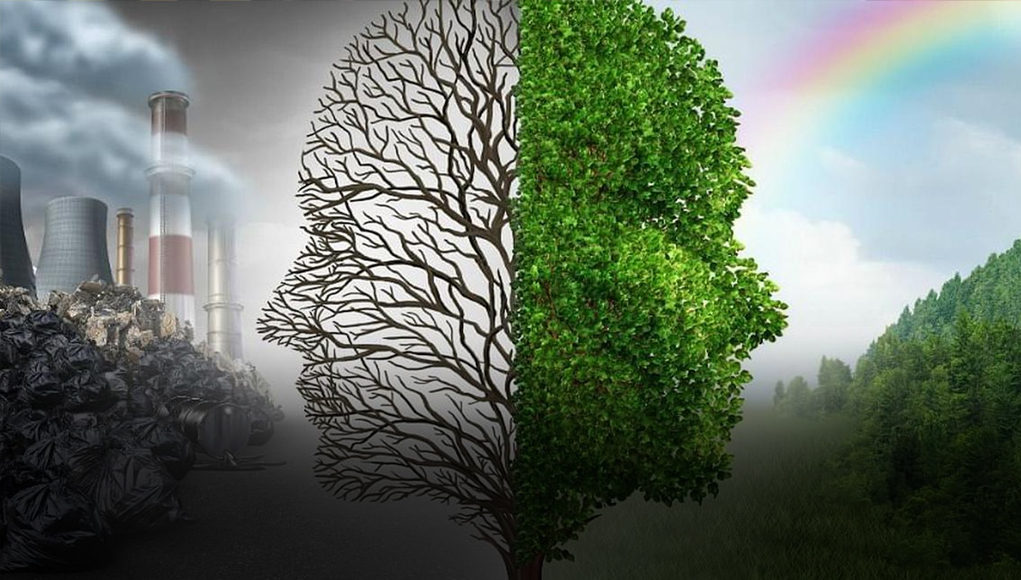There is an unresolved contradiction at the heart of environmentalism: are humans special, or not?
That may seem like a pretty basic question, but from it flow a raft of challenges to environmentalist thinking.
For most of human history, the answer was taken as a given: of course humans are special. Creation myths around the world, Christian, Babylonian, Hindu or Māori, emphasise the unique creation of humans.
This human-centric worldview was rudely overthrown in the 19th century by the march of scientific discovery, especially the discovery of evolution. Nowadays, it is fashionable to argue that “Humans are nowhere near as special as we like to think”, or even deride humanity as mere “chemical scum on a moderate-sized planet” (Stephen Hawking).
If it’s true that humans are just another animal, no better than pond-scum, then why does it matter how we affect our environment? After all, every living species affects their environment, from elephants to cyanobacteria. But no environmentalist rails at elephants for their destructiveness. No-one holds cyanobacteria personally accountable for blooming uncontrollably and poisoning waterways.
Speciesism is allowing the interests of one species to override those of other species.
If humans are just another animal, we are just another part of nature. Nothing we do can possibly be “unnatural”.
Even driving other species to extinction.
After all, extinction is the natural destiny of nearly every species. What matter if humans push a species off its perch rather than, say, competition from another species? Consider the Pedder Galaxias, a species of fish only found in Lake Pedder in Tasmania. Yet, Lake Pedder was only destined to exist in isolation for a geological eyeblink. The Pedder Galaxias was doomed, either way. Humans are no more “responsible” for its extinction than a landslide or a flood.
The reason other species are not held accountable for their environmental destruction reason seems plain: they don’t know any better. Rabbits are incapable of making a collective decision not to over-graze and thus ensure the continuation of other species. Cyanobacteria cannot choose to avoid choking waterways.
Humans alone are capable of making such decisions. Humans are the only species who choose to place the interests of their own species behind others. Environmentalists would surely argue against that claim, but it’s self-evident every time humans practise environmentalist decision-making. When, for instance, the Tasmanian community forgoes the building of a dam, or dismantles its forestry industry – both tremendously costly decisions to the human inhabitants of the island – they are choosing to place the interests of other species ahead of humans.
That may seem right and proper to environmentalists, but it’s a form of speciesism – a moral failing equivalent in environmental thinking to racism or sexism. Speciesism is allowing the interests of one species to override those of other species. Richard Dawkins states that he doubts there can be a defensible rationale for speciesism. So environmental action stands damned by its own assumptions.
Still, it might be argued that humans are not really placing their interests second at all. Refusing to dam a wild river serves human interests because its preservation simply pleases us. We value the natural environment of the river above that of a dam. The value of a pristine forest is greater than that of a thriving forestry industry.
If humans are just another animal, we are just another part of nature.
Each of those may be true – but they bring us right back to the initial question: the uniqueness of humans.
Value is a human construct. More accurately, it is the construction of persons: which, so far as we currently know, means humans.
Perhaps in an effort to dethrone human uniqueness, there are arguments by environmentalists to extend the concept of personhood to other animals, notably great apes and cetaceans. Which seem suspiciously to be merely the species which most environmentalists find especially winsome (although others try to extend personhood to all living things, some, even non-living things, like rocks).
The problem with such arguments is that personhood is a forensic concept. That is, personhood does not merely convey rights, it demands responsibility for a person’s actions. Are environmentalists willing to try and convict dolphins for their well-documented proclivities for gang-rape, or senselessly murdering baby porpoises? Should a chimpanzee which turns on its keeper be tried and punished?
In fact, in the early 20th century, several circus elephants were publicly executed for killing humans. Those acts are now widely regarded as grotesque travesties. Which is a tacit admission that the animals were not, in fact, persons.
Thus it seems that humans are indeed unique.
If so, are we not entitled to demand a privileged place in the ecosystem, and not be subjected to demands made of no other species?
Thank you for your support. To help us in our battle to protect liberty and freedom please click here
Punk rock philosopher. Liberalist contrarian. Grumpy old bastard.
I grew up in a generational-Labor-voting family. I kept the faith long after the political left had abandoned it. In the last decade or two, I’ve voted at times for just about all of the major parties and quite a few of the minor ones.
My vote may have changed, but those basic working-class values I grew up with never have.










